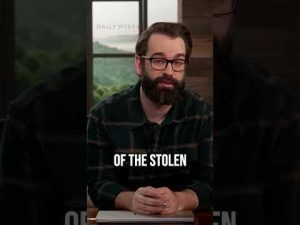In the latest episode of a political saga unfolding in Maryland, residents are watching events that feel more like a never-ending courtroom drama than actual policy-making. The central character, Kilmara Abrego Garcia, is embroiled in a scandal involving deportation, assault charges, and the contentious nature of sanctuary city policies. The outcome of this drama seems to have broader implications, advancing a debate that potentially puts public safety at risk.
Abrego Garcia, already under scrutiny for his less-than-desirable activities, has become the focus of a fierce legal battle. Some arguments are rooted in human rights, as echoed by Maryland Senator Chris Van Hollen. He argues that protecting due process is paramount, even when applying it to cases involving less-than-reputable individuals. Van Hollen’s sentiments reflect a focus on constitutional rights, but is this getting too close to standing up for the wrong guy just for the sake of principles?
In a bizarre twist, the judicial system seems to be at odds with President Trump’s administration, as they try to proceed with deportations using the Alien Enemies Act. Despite a ruling that temporarily halted this effort, the idea that the courts would impede the removal of dangerous individuals seems outlandish to many. If not careful, this could lead to long-term implications for community safety.
More perplexing is how the judicial branch, embodied here by a certain Judge Hannah Dugan, appears to take on a role more akin to policy-maker than adjudicator. Her actions—and perceived leniency—are seen by some as undermining federal immigration law and ultimately placing citizens at risk. It’s as if Judge Dugan believes her courtroom is a political stage, a risky performance when community safety is potentially in jeopardy.
The crux of the issue, however, lies at the feet of sanctuary city policies, those beloved by some and bemoaned by others. These policies have set the stage for this entire drama, as they often clash with federal immigration directives. In this theatre of the absurd, one can’t help but wonder if the hand-wringing is more theatrical than sagacious. Society is left to ponder whether current practices that place ideology over public safety merit reconsideration. If change doesn’t occur soon, we may have to start getting comfortable with living in an environment teetering on the edge of order and chaos.







